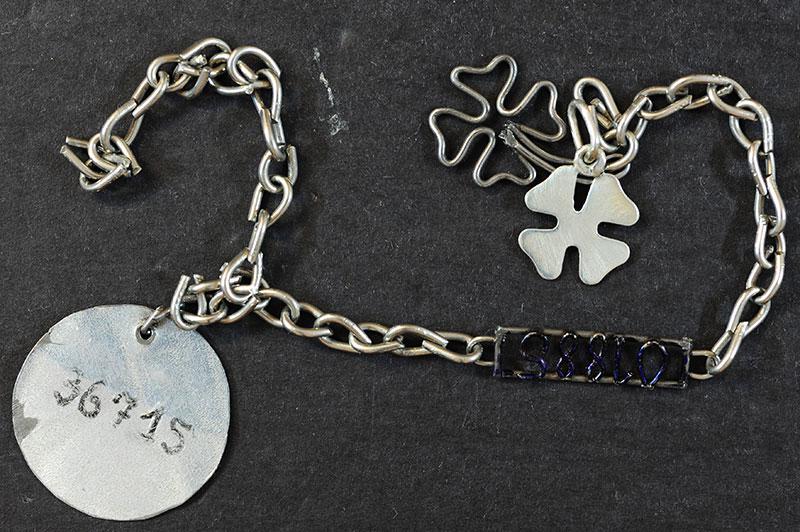

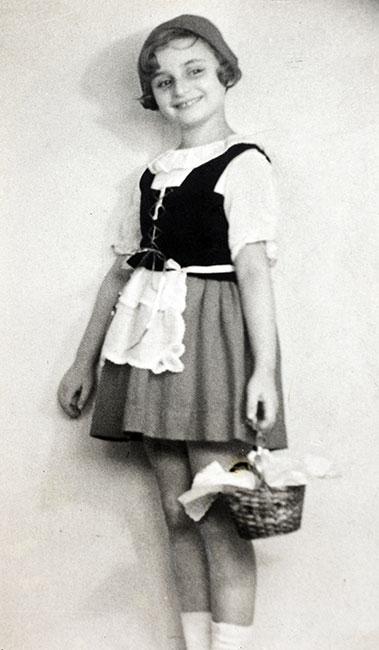

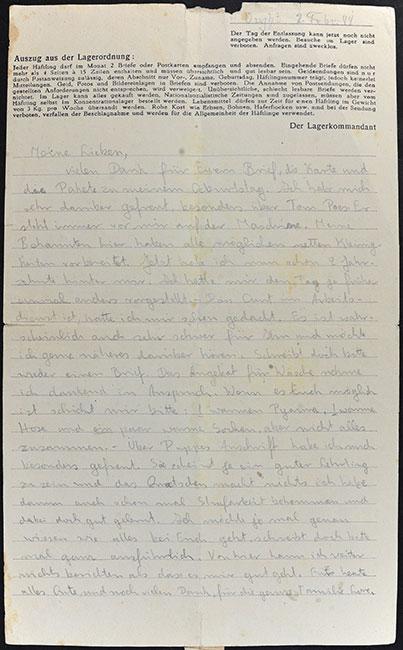

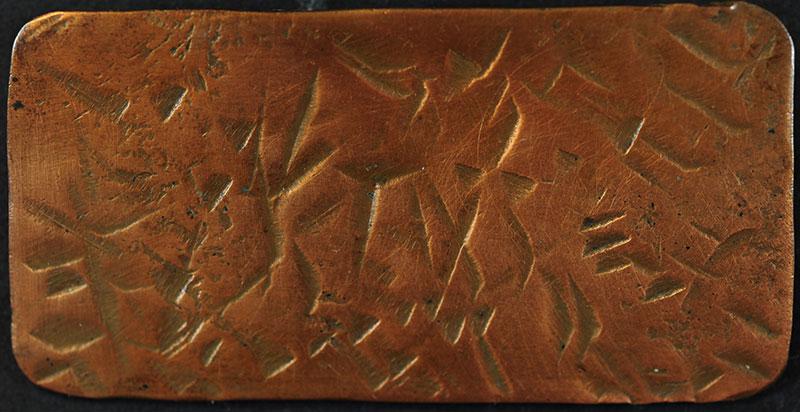

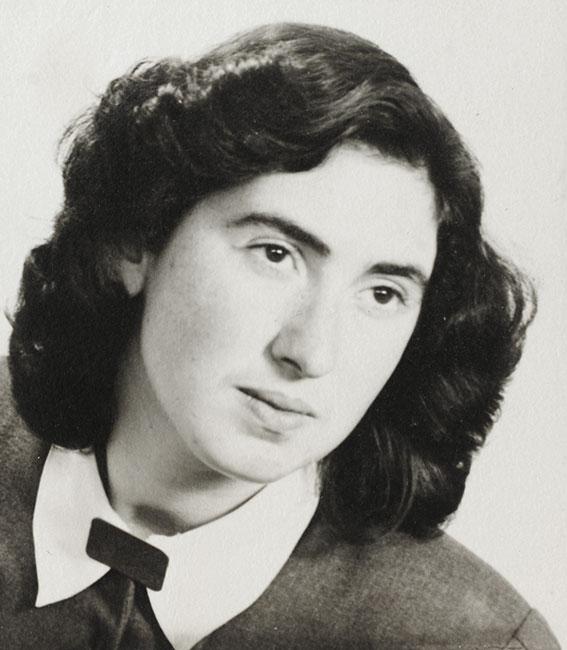

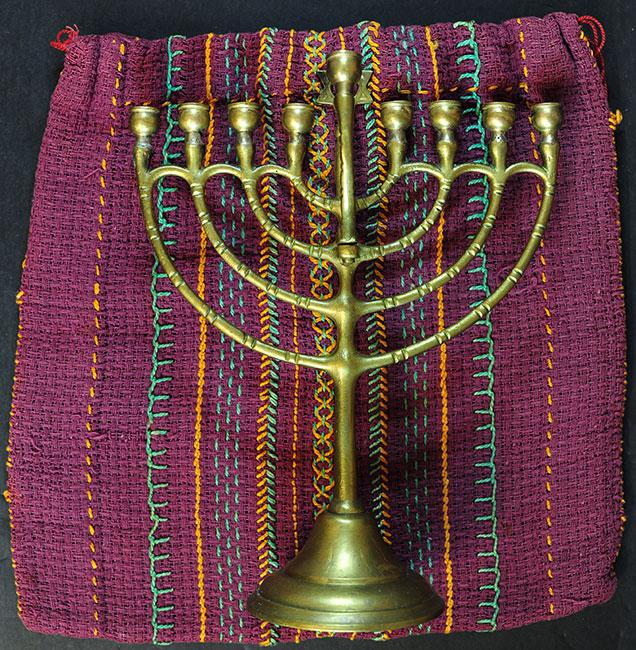

Sunday to Thursday: 09:00-17:00
Fridays and Holiday eves: 09:00-14:00
Yad Vashem is closed on Saturdays and all Jewish Holidays.
Entrance to the Holocaust History Museum is not permitted for children under the age of 10. Babies in strollers or carriers will not be permitted to enter.












My parents died, I left my homeland because of the war, I was deported from the land wherein I sought refuge and taken to the camps. After the war I left Europe and immigrated to Eretz Israel, to start anew.
What remains, as a memento from my life before the war and from my parents’ home, are objects. Most of the objects have a story too. And perhaps that is why I am so attached to these items and why I value them.
From Lore Bender-Mainzer’s dedication to her family in her memoir
Lore Bender, daughter of Rudolf and Gertrud née Cohen, was born in Berlin in 1924. In 1935 her parents decided to leave Germany because of the escalating antisemitism. They investigated various options for emigration, including moving to Eretz Israel. In 1937 the family moved to Holland; Lore left Germany on her thirteenth birthday.
In May 1940, Germany invaded Holland and about three months later began to implement their anti-Jewish legislation. On 2 December 1942, Lore’s parents were taken from their home in the dead of night, and she was forced to part from them hurriedly. They were deported to the Westerbork transit camp.
About two months later, at the end of January 1943, Lore was deported to the Vught labor and transit camp in Holland, where she was reunited with her friend Laura Zuckerberg, whom she had met through the Maccabi Hatza’ir youth movement in Amsterdam.
For several months Lore was able to correspond with her family and to receive letters from her parents. The final letter that she received from her parents is dated 17 May 1943:
We have still not received your reply to our letter of 3/5/43 … we have heard about you from Aunt Edith and others … here nothing has changed … Irma has ‘disappeared’
Eleven days later, Lore’s parents were sent from Westerbork to the Sobibor death camp, where they were murdered. On 17 June 1943 her aunt wrote to her:
You want to know what has changed since 15 May 1943 … In the meantime, your parents have already left, something which I presume you have already heard.
In June 1944, after about a year-and-a-half in Vught, Lore was deported to Auschwitz on a freight train. There she was registered in the camp and a number was tattooed on her arm. After five days in Auschwitz, Lore was sent to a camp that had been established near the city of Reichenbach in Germany, where she worked in the Telefunken factory. There she fashioned a bracelet using links made from aluminium wires, to which she attached the disc with her camp prisoner number and a pendant on which she had engraved her prisoner number from Vught. She also attached a pendant shaped like a four-leaved clover, a talisman for good luck.
Later, the group of female prisoners that worked in the factory was transferred to a camp in the city of Langenbilau. This camp was far away from the factory, and they were forced to march an hour to and from work every day. In February 1945, with the approach of the Red Army, the prisoners (including Lore) were marched for four days until they reached a camp in Czechoslovakia. Lore was transferred from camp to camp until she was liberated in May 1945. In the two-year period since she had been taken from her home in Amsterdam, Lore was an inmate in nine different camps.
After the war, Lore returned to Amsterdam and lived for a short while with her cousin. One day, she was surprised and excited to discover a small embroidered cloth bag in a cupboard in the house. It was the cloth bag that she had sewn when she was seven years old and still living with her parents in Berlin. Inside the bag, she found the Hanukkah menorah that her parents had given her when she was five, and which had served the family until the final Hanukkah that they celebrated together as a family, in Amsterdam in 1941. It transpired that before they were deported, Lore’s parents had given the menorah in the bag to relatives for safekeeping, along with some other items.
Lore donated a number of items to Yad Vashem for posterity through the Gathering the Fragments campaign. Among them were the cloth bag that she had sewn and embroidered in her childhood, the bracelet that she had made with the clover pendant and her prisoner numbers, a copper brooch that her friend Laura Zuckerberg had made for her in the Reichenbach camp, and eleven letters that Lore wrote when she was a prisoner at Vught to her parents who were incarcerated in Westerbork. Family members had kept the letters for her and returned them to her after the war.

Thank you for registering to receive information from Yad Vashem.
You will receive periodic updates regarding recent events, publications and new initiatives.

"The work of Yad Vashem is critical and necessary to remind the world of the consequences of hate"
Paul Daly
#GivingTuesday
Donate to Educate Against Hate


Worldwide antisemitism is on the rise.
At Yad Vashem, we strive to make the world a better place by combating antisemitism through teacher training, international lectures and workshops and online courses.
We need you to partner with us in this vital mission to #EducateAgainstHate
The good news:
The Yad Vashem website had recently undergone a major upgrade!
The less good news:
The page you are looking for has apparently been moved.
We are therefore redirecting you to what we hope will be a useful landing page.
For any questions/clarifications/problems, please contact: webmaster@yadvashem.org.il
Press the X button to continue



